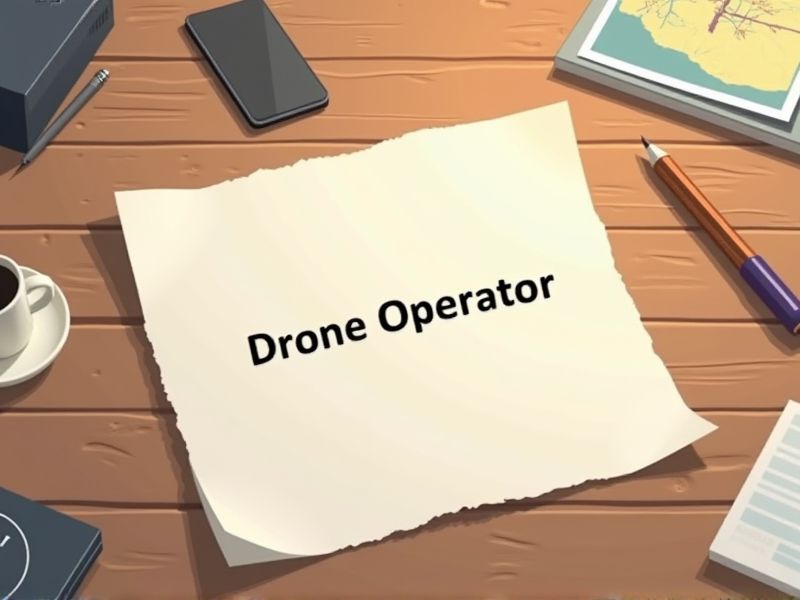
Drone operators increasingly require certifications due to the complex regulations governing drone usage and airspace management. Certification ensures that operators have the requisite skills to handle drones safely, thus minimizing risks associated with accidents or infringements. Moreover, certified operators are better equipped to navigate the legal and ethical considerations surrounding privacy and data collection. Some critical certifications you might need as a Drone Operator include those that address safety standards, flight proficiency, and regulatory compliance.
FAA Part 107 Remote Pilot Certification
FAA Part 107 Remote Pilot Certification is required to ensure drone operators understand and comply with federal regulations, minimizing risks to people and property. It establishes a standardized knowledge base, which enhances safety and efficiency in the national airspace. Certification also helps operators gain credibility and trust when providing commercial drone services. With evolving technology, the regulations prepare drone pilots for navigating potential challenges and responsibilities.
UAS (Unmanned Aircraft Systems) Operator Certificate
Obtaining a UAS Operator Certificate ensures that drone operators possess the necessary knowledge of aviation regulations and safety protocols. This certification mitigates the risk of accidents and incidents by enforcing standardized operational procedures. The requirement of a certificate supports accountability and traceability, enhancing the airspace's overall safety. Regulatory bodies can use the certification process to assess and manage the potential environmental and privacy impacts of drone activities.
EASA Drone Pilot Certificate
EASA Drone Pilot Certificate is needed because it ensures that drone operators are qualified and knowledgeable about safety regulations, reducing the risk of accidents. It helps standardize competencies across European countries, facilitating easier movement and operation across borders. The certificate also helps in building public trust by demonstrating that operators have undergone thorough training and assessment. Compliance with this requirement allows drones to be used in more complex scenarios, expanding operational possibilities.
BVLOS (Beyond Visual Line Of Sight) Certification
BVLOS certification equips drone operators with the necessary skills and knowledge to safely operate drones beyond their immediate visual range, reducing risks of mid-air collisions and ensuring public safety. It enables operators to conduct complex and expansive operations, like agricultural surveys or disaster response, that require extended range capabilities. This certification also complies with regulatory frameworks set by aviation authorities, such as the FAA, to standardize and enforce the safe use of unmanned aerial vehicles. Acquiring BVLOS certification can enhance operational efficiency and open up new business opportunities by allowing drones to cover larger areas in a shorter time.
Aerial Photography & Videography Certification
Obtaining an aerial photography and videography certification ensures that drone operators have the necessary knowledge of aviation regulations and safety guidelines. The certification process typically involves learning about airspace classifications and weather conditions, reducing the risk of accidents. Certified operators are more likely to gain client trust, leading to increased business opportunities in industries such as real estate and media. Holding a certification may be required by law in certain regions, ensuring compliance with local and national regulations while operating drones commercially.
Drone Mapping & Surveying Certification
Without certification, drone operators may lack the standardized knowledge required for accurate and safe mapping processes, potentially affecting project outcomes. Certification ensures operators adhere to legal requirements, reducing the risk of regulatory violations. It enhances credibility, making operators more appealing to clients who prioritize professional standards. Certified operators are likely to have a better understanding of emerging technologies, improving the quality and efficiency of drone mapping and surveying services.
Remote Sensing Certification
Remote sensing certification enhances a drone operator's ability to accurately interpret data collected from aerial surveys, leading to more informed decision-making. Understanding regulations surrounding remote sensing ensures compliance with legal and ethical standards. Certification provides specialized knowledge in sensor technology and data processing, which improves operational efficiency and precision. Employers and clients often prefer certified operators, considering them more reliable and proficient in handling complex remote sensing tasks.
Drone Safety & Emergency Management Certification
The increasing use of drones in various sectors has raised concerns about airspace safety, necessitating formal training in drone safety and emergency management. Certification ensures operators are knowledgeable about legal and operational guidelines, reducing the risk of accidents. With advanced understanding, drone operators can effectively respond to emergencies, minimizing potential harm and financial losses. Regulatory bodies and insurance companies often require certification, enhancing accountability and professionalism in the field.
Advanced UAV Operation Certification
Advanced UAV Operation Certification ensures safety by equipping drone operators with knowledge of legal regulations and airspace management. Certification courses often emphasize skill development, reducing the risk of accidents. Certified operators gain credibility, which enhances job opportunities in sectors like agriculture, surveying, and media. Insurance companies often favor certified operators, potentially leading to lower premiums and better coverage options.
Drone Maintenance & Troubleshooting Certification
Drone Maintenance & Troubleshooting Certification equips operators with the necessary skills to identify and resolve technical issues, minimizing downtime. This certification ensures safety and compliance with aviation regulations, reducing the risk of accidents. It enhances an operator's credibility and marketability in a competitive industry, potentially leading to more job opportunities. With the rapid advancement in drone technology, the certification provides ongoing education, keeping operators up-to-date with the latest advancements and best practices.
Summary
When you obtain certifications as a drone operator, your skills become formally validated, enhancing your employability. Certified operators often gain access to higher-paying job opportunities and projects. Employers tend to prioritize certified individuals, trusting their proficiency and understanding of regulations. Consequently, certified operators usually experience increased demand for their services within the industry.
